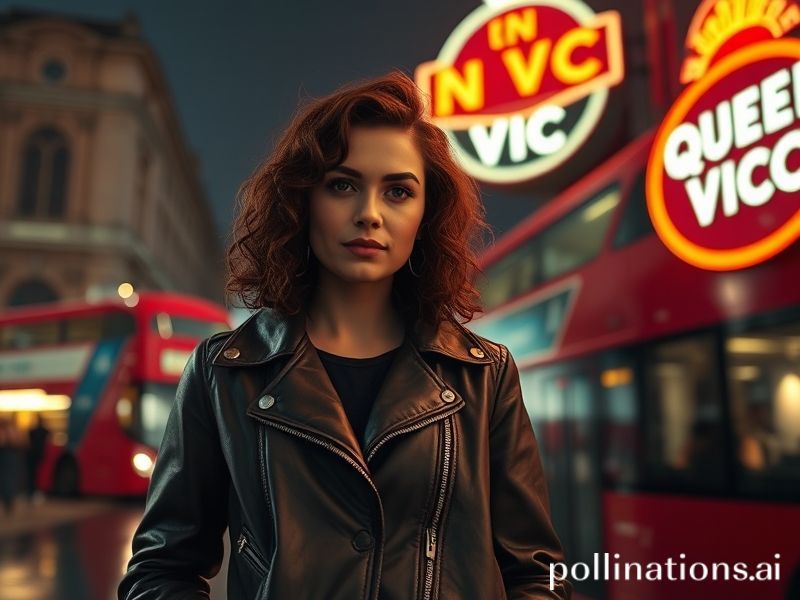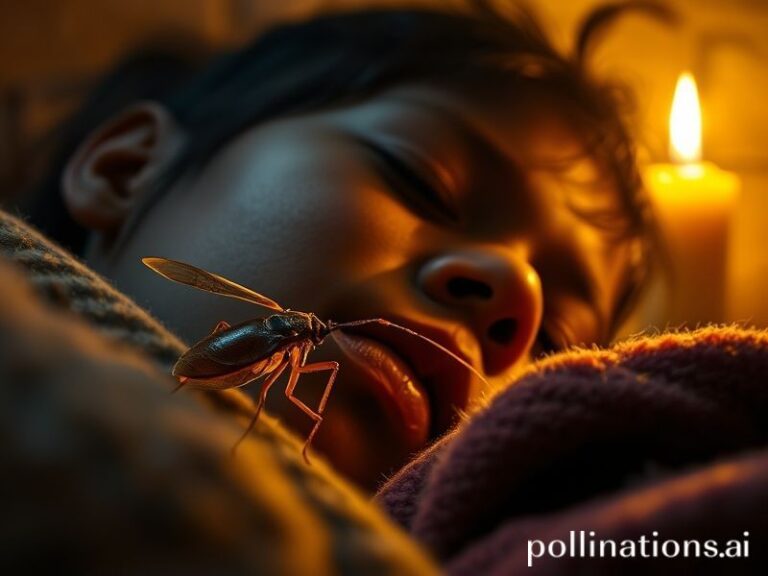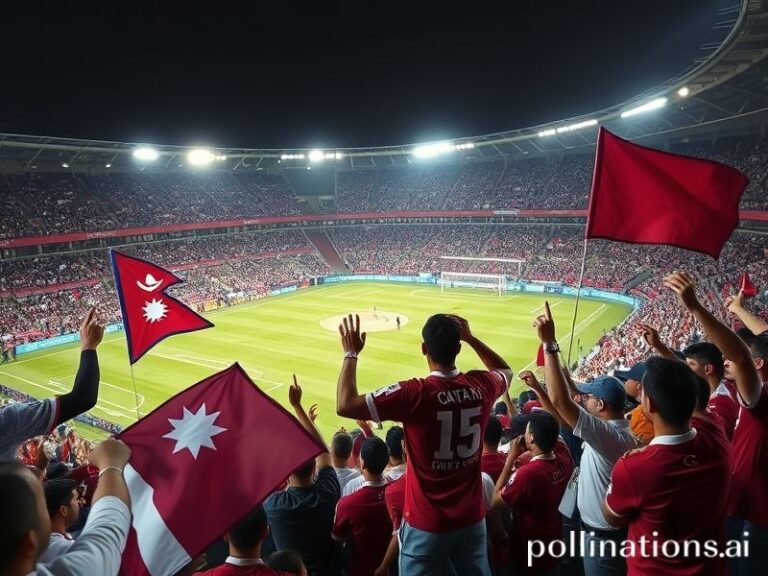Zoe Slater Goes Global: How a British Soap Scream Became the World’s Favorite Emotional Export
The Curious Case of Zoe Slater: How a Fictional East-End Teenager Became a Global Rorschach Test
By Our Correspondent in a Hotel Mini-Bar, Somewhere Over the Atlantic
In the grand bazaar of global pop culture, where K-Pop idols moonlight as UN envoys and Scandinavian noir detectives moon over existentialism, a British soap-opera character named Zoe Slater—yes, the one who once screamed “You ain’t my muvva!” at a woman who very much was—has achieved the sort of soft-power reach most nation-states would trade a submarine fleet for. From Lagos viewing parlors to Toronto laundromats where EastEnders episodes run on loop like propaganda reels, Zoe has become less a person and more a diagnostic tool for whatever neurosis happens to be trending that fiscal quarter.
To the uninitiated: Zoe is the daughter of Kat Slater, product of a family tree that looks like it was sketched during a power outage. She spent her formative years oscillating between market-stall melodrama and the kind of doomed romances that make Romeo and Juliet look like a stable Tinder match. Her landmark 2001 revelation—that the woman she believed to be her sister was in fact her biological mother—was originally engineered to spike UK ratings. Instead, it ricocheted across continents, mutating into memes, think-pieces, and at least one gender-studies syllabus in Utrecht titled “Maternity, Markets, and Misery: The Kat & Zoe Paradigm.”
Why does a working-class London teenager still matter in a world busy flirting with nuclear brinkmanship and algorithmic feudalism? Because, dear reader, Zoe is the perfect export: low-resolution enough to project onto, high-stakes enough to care. In Brazil, she’s shorthand for class mobility gone septic—telenovela Twitter uses #ZoeSlater whenever a poor ingénue marries into money and immediately starts embezzling. In Seoul, fan-edits splice her tear-streaked confessionals with K-drama rain scenes, producing mood reels that therapists quietly assign to manic patients. Meanwhile, in the United States—where EastEnders airs on select public-broadcast stations at hours usually reserved for infomercials about reverse mortgages—Zoe has become a cult heroine for graduate students writing dissertations on neoliberal despair. One Ivy-League paper argued her arc “prefigures the gig economy: unpaid emotional labor, zero-hour contracts on dignity, and the perpetual threat of being written out.”
The global bureaucracies have taken notice, sort of. The BBC’s commercial arm licenses EastEnders clips as “educational content” to language schools from Jakarta to Jalisco, meaning that generations of ESL students now learn English via sentences like, “I’m your daughter, not your sister, you lying cow!” Diplomats at the British Council have been known to slip Zoe GIFs into PowerPoints when explaining British notions of family—usually right after the slide on the Magna Carta, for tonal whiplash. Even the World Health Organization, in a 2019 report on adolescent mental health, cited Zoe’s “perpetual fight-or-flight cortisol loop” as a fictional yet useful case study. Somewhere in Geneva, a bureaucrat is billing overtime for that sentence.
Ironically, the actress who played Zoe, Michelle Ryan, long ago escaped to Hollywood, where she was promptly cast as a rebooted Bionic Woman—trading one implausible backstory for another. Yet the character lingers, a ghost in the international machine. When Brexit negotiations turned farcical, Spanish newspapers ran cartoons of Boris Johnson in a leopard-print coat, screaming “You ain’t my muvva!” at Angela Merkel. During the pandemic, an Italian graffiti artist stenciled Zoe’s tearful face above the phrase “Siamo tutti figli segreti”—we are all secret children—because nothing says universal abandonment like a twenty-year-old BBC clip.
There is, of course, a darker punchline. In an era when actual migrants drown in the English Channel and real East-End rents rival Monaco, Zoe’s fictional misery has become a luxury import: trauma you can binge between Zoom calls. The planet buys her angst in bulk, sprinkles it over brunch conversations, then returns to doom-scrolling about carbon budgets. Perhaps that is her ultimate international service: a melodramatic pressure valve for a world that prefers its suffering pre-packaged and resolved in thirty-minute installments.
So here’s to Zoe Slater, accidental ambassador of the post-truth age. May her eyeliner stay smudged, her family tree remain wreath-shaped, and her screams echo through every customs checkpoint where reality is just another commodity with a barcode.







